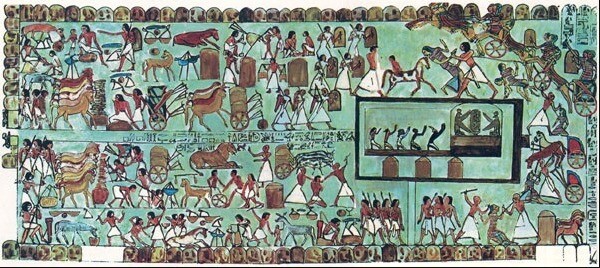"A few powerful positive themes have emerged from my study of the cultures of the ancient Near East (Egypt, Mesopotamia, Syria-Palestine, Anatolia, Greece, and Rome). One is the centrality and importance of a temple in almost every culture. Another is humankind’s relentless quest to come into contact with the divine—to enjoy communion with the gods who are worshiped and honored in temples. This desire to commune with deity in special sanctuaries is as old as Western civilization itself. And it’s also a significant desire held by the Latter-day Saints." —Andrew Skinner (Read more of his findings on Egyptian and LDS temple worship here.)
Question: Hugh W. Nibley and other LDS scholars have written at length about Egyptian temple rites. What similarities are there between Egyptian and Israelite temples?
Summary: Temple rituals in the ancient Near East may seem in some respects far removed from current LDS teachings and ritual practices. However, what resemblances exist may be of significance to a people who claim that divine revelation about the ordinances go back to the beginning of mankind. Predating, as they do, the Israelite Tabernacle by more than a millennium, such resemblances may be “an embarrassment to exclusivistic readings of religion.”[iii] However, to Mormons they represent “a kind of confirmation and vindication.”[iv] Thus, Egyptian and other ancient temples should be better understood by Latter-day Saints. For although, as Hugh Nibley observed, “the Egyptian endowment was but an imitation, it was still a good one, and we may be able to learn much from it.”[v] . . .
The Know
The Antiquity of Temple Ordinances
Joseph Smith taught that the origins of modern temple ordinances go back beyond the foundation of the world. For example in 1835, as the Saints prepared to receive the ordinances that would be available to them in the Kirtland Temple, the Prophet stated:[x]
► You'll also like: 3 Fascinating Connections Between LDS and Ancient Egyptian Temple Worship and Beliefs
The order of the house of God has been, and ever will be, the same, even after Christ comes; and after the termination of the thousand years it will be the same; and we shall finally enter into the celestial kingdom of God, and enjoy it forever.

